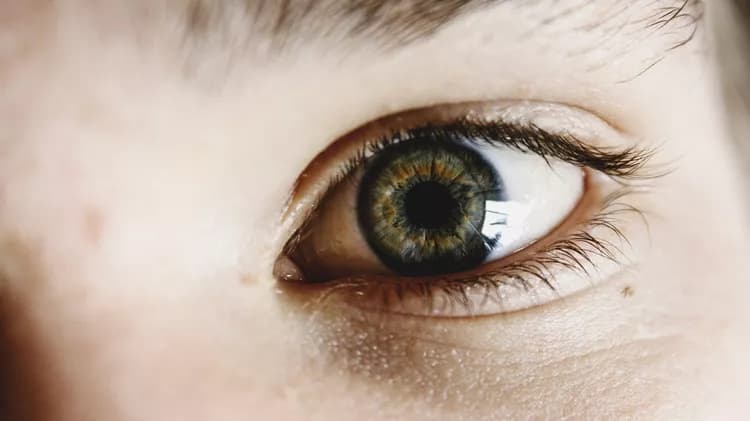
Eye Movements Reveal Temporal Expectation Deficits In ADHD
A technique that measures tiny movements of the eyes may help scientists better understand and perhaps eventually improve assessment of ADHD, according to new research published in Psychological Science, a journal of the Association for Psychological Science.
Emerging evidence shows that small involuntary eye movements (saccades and microsaccades) are a promising new tool for shedding light on the hidden workings of mental processes like attention and anticipation, cognitive processes that are often impaired in individuals with ADHD. The new study suggests that carefully tracking eye movements offers a new method for empirically monitoring temporal expectation in people with ADHD.
"The eye is restless and eye movements occur constantly, even when observers try to avoid them. Our study shows that this continuous stream of eye movements is temporarily paused before an anticipated visual event," says psychologist and neuroscientist Shlomit Yuval-Greenberg (Assistant Professor at Tel Aviv University), senior author on the study. "This attenuation in eye movements can be used as an estimate for whether and when the occurrence of regular events was indeed predicted."
Yuval-Greenberg and colleagues found that neurotypical individuals (those without a diagnosis of ADHD) tended to have different patterns of eye movements compared with individuals who had an ADHD diagnosis.
"We found that individuals with ADHD tended to not attenuate their eye movements before a predictable event, which suggests that they were not able to predict the event and/or to act upon predictions," Yuval-Greenberg explains.
The team's findings indicate that careful analysis of eye movements may offer an objective measure to complement other tools used for diagnosis and assessing treatment efficacy.
For their study, Yuval-Greenberg and colleagues collected data from a group of 20 individuals who had an ADHD diagnosis and a group of 20 neurotypical controls. Those in the ADHD group were asked to refrain from taking any ADHD-related medication for 24 hours prior to the testing sessions.
On two different days, the participants came into the lab where they were shown a series of colored shapes on a screen while their eye movements were monitored. The participants were instructed to press a key whenever they saw a red square (which appeared around 25% of the time). On one day, participants were shown the shapes at predictable intervals: Every two seconds the next shape would appear. On the other day, the time between shapes varied from 1 to 2.5 seconds. Participants were not told that the timing would be different between the two sessions.
When the stimulus appeared at regular, predictable intervals people in the control group responded more quickly than when it appeared at varied intervals. However, the reaction times of those with ADHD did not improve under predictable conditions.
The researchers also found that those in the control group tended to have fewer eye movements immediately before a predicted event. In contrast, those in the ADHD group did not show the same eye movement slowdown in preparation for an upcoming stimulus.
However, the researchers were surprised to find that an ADHD diagnosis was not the best predictor of an individual's ability to stay focused on the task.
"It is well documented that ADHD is a heterogeneous disorder. It is also documented that only some of the individuals with ADHD experience difficulties in maintaining focused attention throughout a monotonous task," Yuval-Greenberg says. "Yet we were most surprised to reveal that the individual ability to stay focused throughout the task was a better predictor for the attenuation of eye movements than whether or not that individual was diagnosed with ADHD."
This finding is valuable because it demonstrates the importance of assessing the specific neuropsychological functioning of each individual, Yuval-Greenberg explains. And the study highlights the potential use of eye movements as an objective measure of temporal expectation.
Related Articles
Test Your Knowledge
Asked by users
Related Centers
Related Specialties
Related Physicians
Related Procedures
Related Resources
Join DoveHubs
and connect with fellow professionals

0 Comments
Please log in to post a comment.